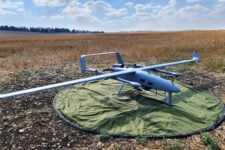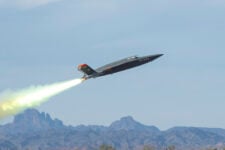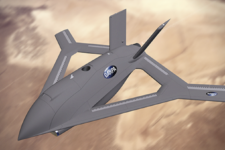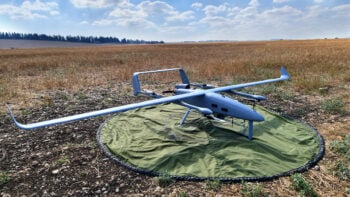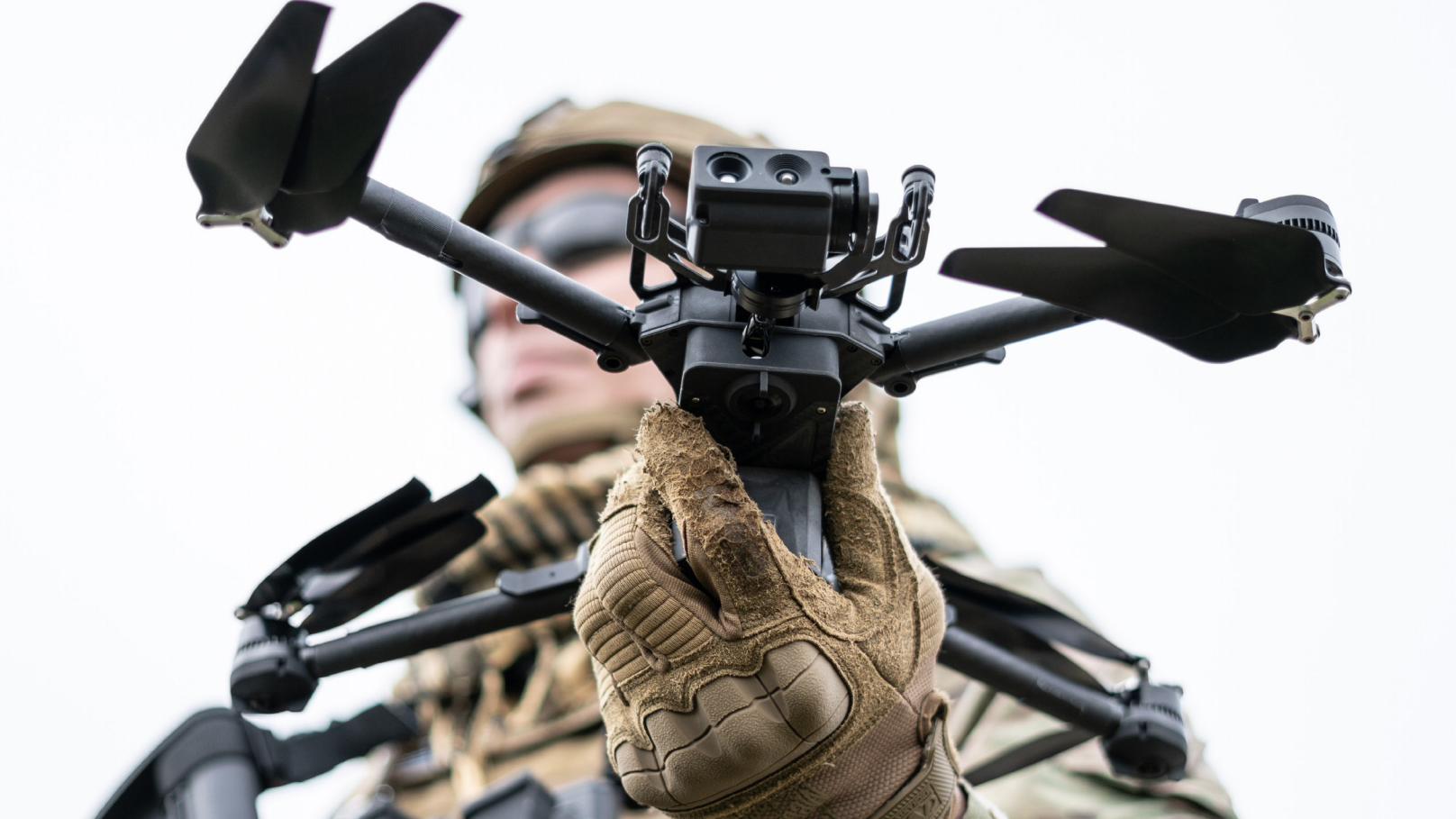
A soldier handles a commercially-developed drone acquired via the Defense Innovation Unit (DIU).
WASHINGTON: The Pentagon’s Defense Innovation Unit transitioned eight new technologies to the military services last year, including several cyber-focused projects and a hypersonic missile trajectory modeling prototype for the Missile Defense Agency.
According to DIU’s 2021 annual report, which highlights its work getting emerging tech to the services who will actually use them, the innovation hub published 26 solicitations in fiscal 2021, awarded 72 prototype other transaction contracts (an increase of 31% from FY20) and received 1,116 commercial proposals. Since June 2016, DIU has awarded a total of $892.7 million in contracts to non-traditional technology firms looking to break into the defense sector.
RELATED: Anduril nets biggest DoD contract to date: Signifier or outlier for defense start-ups?
DIU awarded C3.ai a $1.28 million contract to develop an accurate and timely model of incoming missile trajectories. The project, which simulates real-world performance of non-ballistic and hypersonic missiles, resulted in a $2.5 million contract with the Missile Defense Agency.
CounterCraft, a cyber deception and counterintelligence company, developed a cyberspace deception prototype that resulted in a sole-source contract with a $30 million ceiling. The platform warns against adversarial activity and has been tested in military wargames, according to the report.
RELATED: DIA Details Push To Modernize Top-Secret Network Amid 150% Uptick In Cyber Threats
In another cyber-related project, IntelliPeak Solutions, an information technology company, received a production contract valued at up to $164 million to develop a cyber asset inventory management system. The report states the prototype, run by DIU and the Defense Information Security Agency successfully identified large gaps in existing tools and saved an estimated three years of development time for a similar tool as well as over $400,000 per year for each cybersecurity organization.
DIU also awarded LookingGlass Cyber Solutions a contract worth up to $14 million to develop a commercial threat data prototype for U.S. Cyber Command that would enable real-time analysis and decision-making.
Three space launch providers — Rocket Lab USA, VOX Space and Astra Space — developed a low-cost, on-demand commercial responsive launch capability with a $27.8 million contract. The contract, worth up to $968 million, was shared among 11 total vendors and was transitioned to the Space Force.
RELATED: US Space Industry ‘Tactically Strong’ But Lacks Long-Term Investment, Study Finds
In the defensive counter-unmanned aerial system space, DIU awarded Anduril a $5.1 million contract to support U.S. Southern Command, the Marine Corps, the Defense Threat Reduction Agency, Naval Air Systems Command, Customs and Border Patrol and U.S. Central Command. The project resulted in a five-year contract with a $99.9 million ceiling. (The Pentagon recently announced Anduril won a nearly $1 billion contract with US Special Operations Command for counter-drone technology.)
“Defensive systems must detect, track, and defeat adversarial UAS and distinguish them from friendly systems,” the report states. “Anduril combines the latest in artificial intelligence techniques with sensor technology to enhance physical security through automated detection, identification, and defeat objects of interest while reducing manpower requirements.”
France’s military budget leap ‘corresponds to the threat,’ defense minister says
A big investment in intelligence agencies is a “nice surprise,” a former military intelligence chief told Breaking Defense.





